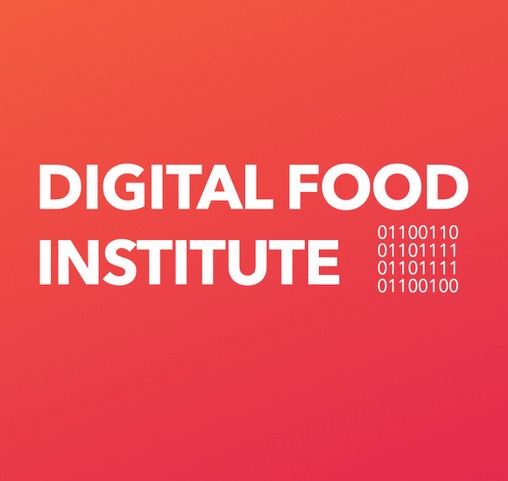Our Colleagues
Meet our Colleagues.
Miklós Süth PhD
Director of the Institute
Miklós Süth is a veterinarian with a food hygiene specialisation. From 2003 to 2010, he worked in the public administration in managerial roles, including as the Chief Veterinary Officer of Hungary. From 2010 to 2018, he was the Strategic Director of Fornetti Franchise. Since 2018, he has been the Chief Adviser to the Rector of the University of Veterinary Medicine. Since April 2020 he also holds the position of director of DFI, since 2022 he is the head of the Department of Food Hygiene, and since 2023 the director of the Institute of Food Chain Science.
Ákos Bernard Jóźwiak PhD
Head of department
Ákos Bernard Jóźwiak is a veterinarian, holding a doctoral degree in veterinary sciences. He worked for the National Food Chain Safety Office (NÉBIH) and its predecessors for 15 years in various positions. In the recent years he worked in the area of strategic planning, food safety risk assessment and data analysis. Since the establishment of DFI he acts as research director, since 2023 as head of department.
Zsuzsa Farkas PhD
Deputy head of department
Zsuzsa Farkas is a biologist, nutritionist, with a PhD in food sciences. She worked for the National Food Chain Safety Office of Hungary (NÉBIH) for 7 years. Her main tasks in the Department are the coordination of emerging risk identification and the supporting data analysis research and development, in addition to the epidemiological modelling of infectious diseases.
Szilveszter Csorba
Food chain data analyst
Szilveszter Csorba is a qualified environmental engineer specialising in agri-environmental protection. He worked for 11 years at NÉBIH and its predecessor. First, he worked in the field of soil protection, then turned toward data analysis. His main tasks at the Department include the development and implementation of complex data analysis methodologies.
Tekla Engelhardt PhD
research fellow
Tekla Engelhardt is a food engineer with a PhD in food sciences. Her scientific research work began in 2011 in the field of food safety after graduating as a food engineer. Her main responsibilities at the Department are the coordination of educational activities, e.g. the development and launch of postgraduate courses, and management of laboratory work.
Máté Farkas DVM
Food chain data analyst
Máté Farkas is a veterinarian, graduated from the University of Veterinary Medicine in 2023. He wrote his thesis on the influence of environmental factors on abnormal behaviour of male turkeys. His areas of interest include poultry health, animal hygiene, animal welfare, food hygiene and its digitalisation. He is working as a research analyst at the Department, and starts his PhD studies at the fall of 2023.
Erika Országh
Food chain data analyst
Erika Országh holds a degree in sociology and in health policy (with specialization in health economics). She worked for the National Food Chain Safety Office (NÉBIH) for almost 6 years. Her main tasks at the Department are to carry out analyses using health technology assessment methodologies, e.g. cost-benefit analysis, risk-benefit analysis and she also participates in vrious data analysis tasks.
Orsolya Strang PhD
Food chain data analyst
Orsolya Strang is a biologist and has a PhD degree in biological sciences. She worked for 6 years in the University of Szeged as a researcher. Her research topics included the production of biogas from lignocellulose containing substrates as well as the investigation of interactions between probiotics and oral pathogenic bacteria. Her tasks at the Department include emerging risk identification, risk assesment and data analysis.
Krisztián Vribék
Food chain data analyst
Krisztián Vribék graduated as an engineering manager and is currently a master's student in cognitive neuroscience. He has previously worked as a manager and commercial director. His current tasks at the department involve data and network analysis.
Andrea Zentai PhD
Food chain data analyst
Zentai Andrea biomérnök, az élelmiszertudományok doktora. 13 éven át dolgozott a NÉBIH-nél és jogelődjénél kockázatbecslési munkatárs, élelmiszerbiztonsági koordinátor és elemző munkakörökben. Részt vett a Codex Alimentarius hazai működtetésében és a Codex analitikai szakbizottságának szakmai szervezésében, továbbá adatelemzéssel és kockázatbecsléssel foglalkozott. A tanszéken az újonnan felmerülő kockázatok azonosításában, a kockázatbecslésben és az oktatással kapcsolatos feladatokban vesz részt-
Tibor Kocsner DVM
Biosafety coordinator
Tibor Kocsner is a veterinarian, with a state administration and disease control specialisation. Worked as a privet veterinarian, as a pathologist at the Laboratory of biotoxicology of the Plant Health and Soil Protection Service. For 25 years he worked for the State Veterinary Service of Hungary at local, regional and ministry level in different positions. He takes part as a lecturer in the education of the Food Hygiene course, and also has responsibilities in the biosafety matters of the University of Veterinary Medicine Budapest.
András Bittsánszky PhD
Assistant professor
András Bittsánszky is an agronomist, has a PhD in Plant Production and Horticulture. His current interests are food microbiology and food hygiene. His research focuses on agricultural production and food processing, with the primary goal of bringing safe and high quality food to our tables. He is a part-time assistant professor at the Department.
András József Tóth PhD
Assistant professor
András József Tóth is a qualified economist, with PhD in management and business administration sciences. His research interests are food safety management, food security and the applicability of rapid microbiological methods in food hygiene surveillance systems. Since 2011 he has been involved in several national and international research projects at the InDeRe Institute for Food System Research and Innovation Ltd. From April 2021, he is a part-time assistant professor at the Department.
